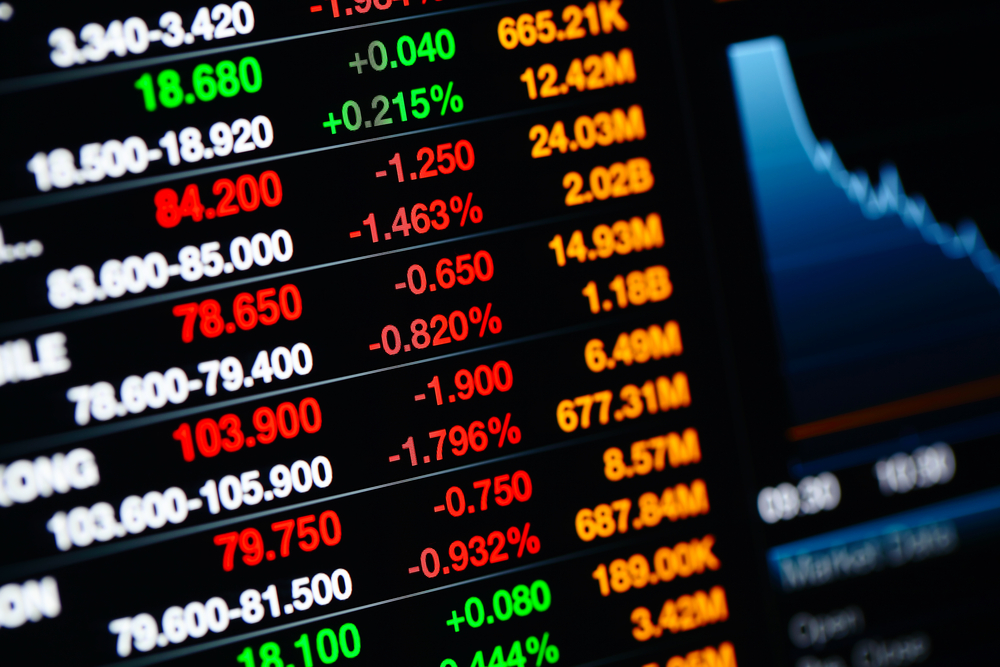Asian markets fluctuated Tuesday after Wall Street suffered its worst day in more than three decades with coronavirus panic sweeping the planet, though European equities enjoyed an early bounce.
While governments and central banks attempt to soothe markets with massive stimulus pledges and interest rate cuts, more countries are going into lockdown to prevent the outbreak's spread -- bringing the world economy juddering to a halt.
There is a broad consensus that the disease, which has wiped trillions off market valuations, will cause a global recession, with the airline industry among the first in the firing line, leading company heads to plead for billions of dollars in state help to prevent them going under.
”Drastic measures by the Federal Reserve and other central banks have failed to appease markets, with investors still running towards the exit door of risk assets as governments step up their radical measures to contain the COVID-19 outbreak,” said National Australia Bank's Rodrigo Catril.
The Philippines became the first country to shut down its stock market as the country goes into lockdown, and the bourse will be closed until further notice.
Sydney rose 5.8 percent, a day after crashing 9.7 percent in its worst day on record.
But after an early advance, the rest of Asia swung in and out of positive territory through the day.
Tokyo ended up 0.1 percent after a roller-coaster session, Hong Kong added 0.9 percent and Mumbai rose 0.7 percent, while Bangkok was slightly higher.
But Shanghai slipped 0.3 percent, while Jakarta sank more than four percent. Seoul, Taipei and Singapore were all down.
Wellington dipped despite New Zealand becoming the latest country to announce monetary support, unveiling a US$7.3 billion package of measures.
That was followed later Tuesday by a 45 billion euro ($50 billion) aid pledge by France for its businesses.
In early trade, London rose 2.9 percent and Frankfurt surged 4.5 percent, while in Paris, where the market regulator banned short-selling on 92 stocks, the CAC 40 rallied four percent.
Wall Street indices collapsed Monday in their worst day since 1987, with the S&P 500 and Nasdaq dropping about 12 percent and the Dow sinking nearly 13 percent. US futures rallied Tuesday.
”The message from markets is that as much as monetary stimulus is a welcome move, lowering the price of borrowing and increasing liquidity are not enough,” added Catril.
”The required COVID-19 measures are hampering the global economy and with activity grinding to a halt, governments need to step in and provide support. Markets are crying out for more fiscal backing.” Heads of the Group of Seven leading economies pledged to “do whatever it takes” to protect the economy, while US President Donald
Trump acknowledged the world's largest economy “may be” headed into recession. However, he added that the crisis should wash through the economy by August, after which there would be a “tremendous surge in the stock market”.
Oil prices edged up after Monday's collapse that saw Brent falling more than 12 percent to a four-year low, and WTI sliding below $30 a barrel.
Adding to the weakness in crude markets is the price war between major producers Saudi Arabia and Russia.
”Presumably, the market is getting supported by physical bargain hunters, but those storage facilities are rapidly filling,” said AxiCorp global chief market strategist Stephen Innes.
But “if storage does fill, quashing that demand, oil prices are sure to collapse further”, he said in a note.
”The global markets will then have to hope that the dispute between Saudi Arabia and Russia is resolved before we reach that point of no return.” IHS Markit said rising production and slumping demand could result in the “most extreme global oil supply surplus ever recorded”.
Tokyo - Nikkei 225: UP 0.1 percent at 17,011.53 (close) Hong Kong - Hang Seng: UP 0.9 percent at 23,263.73 (close) Shanghai - Composite: DOWN 0.3 percent at 2,779.64 (close) London - FTSE 100: UP 2.9 percent at 5,300.74 Dollar/yen: UP at 107.00 yen from 105.92 yen at 2130 GMT Euro/dollar: UP at $1.1144 from $1.1117 Pound/dollar: DOWN at $1.2225 from $1.2240 Euro/pound: UP at 91.22 pence from 91.10 pence Brent North Sea crude: UP 3.3 percent at $31.01 per barrel West Texas Intermediate: UP 5.2 percent at $30.20 per barrel New York - Dow: DOWN 12.9 percent at 20,188.52 (close)










